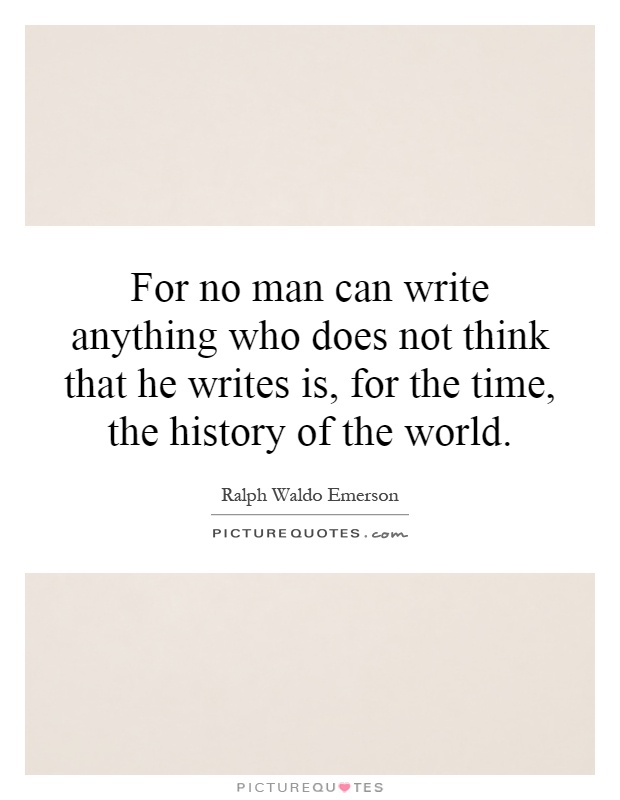For no man can write anything who does not think that he writes is, for the time, the history of the world

For no man can write anything who does not think that he writes is, for the time, the history of the world
Ralph Waldo Emerson, a prominent American essayist, lecturer, and poet, was a firm believer in the power of individual thought and expression. He emphasized the importance of self-reliance, intuition, and the inherent wisdom of the human mind. In his essay "The Poet," Emerson explores the idea that writing is not just a personal act of creation, but a reflection of the collective consciousness of humanity.Emerson's statement, "For no man can write anything who does not think that he writes is, for the time, the history of the world," speaks to the idea that writing is not just a solitary endeavor, but a way of connecting with the broader human experience. When a writer puts pen to paper, they are not just expressing their own thoughts and feelings, but tapping into a universal well of knowledge and understanding.
Emerson believed that the act of writing was a way of capturing the essence of the world around us, of distilling the complexities of human existence into words. By writing, we are able to make sense of our own experiences and emotions, and in doing so, we contribute to the ongoing narrative of history.
For Emerson, writing was a way of engaging with the world and leaving a lasting impact on future generations. He saw the act of writing as a form of immortality, a way of preserving our thoughts and ideas for posterity. In this sense, every writer becomes a historian, documenting the thoughts, feelings, and experiences of their time for future generations to learn from and be inspired by.
Emerson's words remind us of the power of writing to shape our understanding of the world and to connect us to the broader human experience. By embracing our own unique perspectives and sharing them with others, we contribute to the ongoing dialogue of history and enrich the collective consciousness of humanity. In this way, writing becomes not just a personal act of creation, but a vital part of the ever-evolving story of the world.












 Friendship Quotes
Friendship Quotes Love Quotes
Love Quotes Life Quotes
Life Quotes Funny Quotes
Funny Quotes Motivational Quotes
Motivational Quotes Inspirational Quotes
Inspirational Quotes